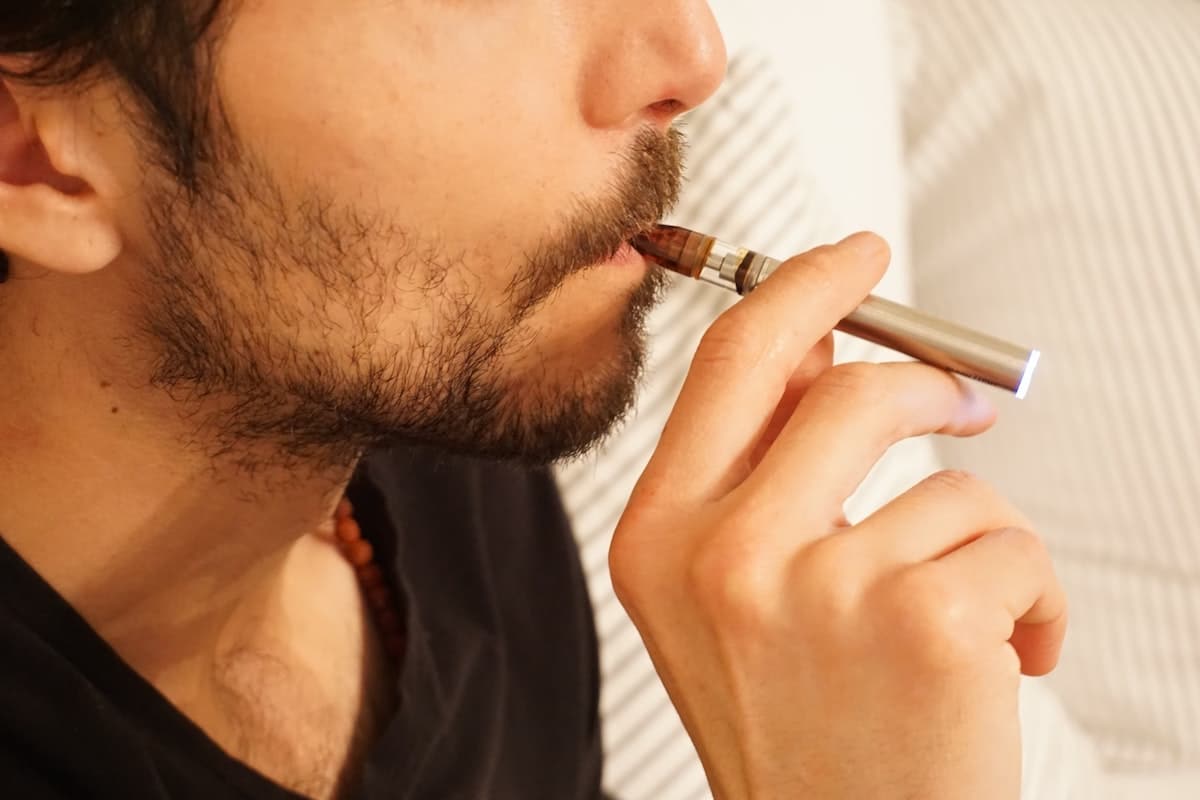Table of Contents
Melatonin has become a popular buzzword recently, as many Americans have turned to this over-the-counter substance for sleep aids. It makes sense: obtaining great ZZZs is becoming increasingly difficult in this age of screens and stress, and melatonin pills are advertised as a reasonably safe and mild sleeping cure.
Melatonin has recently been trending on social media, but with a unique twist: it appears that melatonin vape, or pens, are the newest sleep aid. This new inhalable version of the famous vitamin is gaining popularity. However, with all the internet discussion around the trend, it cannot be easy to separate reality from marketing.
So, the issue is, do these vaporizers help you sleep better? And how about their health? These are vital issues before jumping on board with this specific craze.
What is Melatonin?
Melatonin is a naturally occurring hormone that regulates our sleep cycles. It holds the circadian rhythm (our body’s clock) and controls our sleeping and waking hours. There are various reasons why someone may find themselves unable to sleep when they should or have to sleep at an unexpected hour, such as jet lag, night shifts, pulling an all-nighter, and so on. Some people are born with lower amounts of hormones. When your sleep routine is out of whack, or you have insomnia due to stress and worry, melatonin might be a lifesaver.
Aside from the countless benefits of improved sleep, most people are unaware that this nighttime supplement also plays a significant role in other physiological processes. It has been used to stimulate the immune system, alleviate inflammation, and support the cardiovascular system, among other attractive advantages to help you look and feel your best.
What is a melatonin Vape?
It’s the newest in a long line of over-the-counter melatonin pills… But, unlike traditional pills and gummies, this is a melatonin vapor you breathe into your lungs rather than swallowing or eating.
Melatonin supplements have been available to consumers since the late 1950s, so they are hardly strange. There is a large market for melatonin since it is the fourth most popular natural product in the United States. The benefits of melatonin, a hormone that regulates sleep, can be experienced much more quickly when inhaled using a vaporizer since the hormone enters the circulation instantly. It’s important to note that, unlike e-cigarettes, melatonin vapes and diffusers do not contain nicotine or any other chemicals.
These vaporizers generally carry a liquid containing melatonin (along with other chemicals and extracts) that, when inhaled, transforms into a mist. Because of their pen-like design, they are known as “pens.” They resemble traditional e-cigarettes in design but release melatonin rather than nicotine. Most of the options on the market claim to have fewer chemical additives than traditional nicotine vapes; however, this claim cannot be proven because they are not FDA-regulated.
Health Vape, a market leader in melatonin vapes, highlights melatonin, lavender, and chamomile as the three major constituents in their vapes. Since the ingredients change from product to product, identifying them correctly is challenging.
A brief note: while some people use the word “diffuser” to refer to melatonin pens on the internet, it’s vital to understand that using a vaporizer is not the same as practicing aromatherapy. The distinction is that with a vape or e-cigarette, you’re breathing an aerosol material straight into your lungs instead of dispersing smells throughout your surroundings like you would with aromatherapy.
What does a melatonin vape pen do?
Like any other vaporizer, melatonin pens deliver their chemical into your lungs.
This is how it typically works: a battery-powered heating mechanism is activated when you activate the pen, which is usually done by pushing a button or breathing into the opening. The liquid-containing chamber or cartridge is then heated, causing the material to evaporate and form a breathing mist or aerosol.
The concept is that breathed melatonin may be quickly absorbed by the lungs and reach circulation, causing you to experience the benefits immediately. That is, at least, the selling pitch of melatonin pens and the general assumption of other vapable items.
Do melatonin vapes help with sleep?
Because melatonin pens are so new (the first one was developed within the last five years or so), there is little scientific evidence of their efficacy. Much factual data is going around, and the pens are popular on social media. Still, the lack of controlled clinical research means there is no certainty that a breathable delivery system for melatonin is beneficial in an intended way.
While more study is needed on vapable melatonin, several studies are on the usage and efficacy of oral melatonin supplements. You might be shocked that there isn’t enough evidence to suggest melatonin treatment for chronic or long-term insomnia. However, melatonin can assist with short-term sleep abnormalities such as jet lag, delayed sleep-wake phase disorder, and anxiety before or after surgery.
However, it is crucial to remember that natural melatonin production in the body does not occur entirely at once. Instead, it’s slower and more rhythmic. If everything is operating correctly, your melatonin secretion will begin at the start of the night, steadily increasing until a peak at about 2 a.m. or 4 a.m., then falling until the morning. This is in agreement with your circadian cycle.
Here’s how this relates to melatonin pens: When you vape drugs, they instantly reach your bloodstream. While the thought of fast increasing your body’s melatonin levels may seem enticing, the outcome may not be what you think because this instant delivery technique of the hormone does not coincide with the body’s natural patterns. Melatonin, unlike other drugs, may not be desired to be administered instantly.
Furthermore, a melatonin overdose, which is more likely with vaping than oral pills, might cause you to feel more alert or suffer unfavorable side effects such as headaches, crankiness, upset stomach, or anxiety. In conclusion, clinical research on melatonin vapes is required before a conclusive comment regarding their efficacy in aiding sleep can be made.


